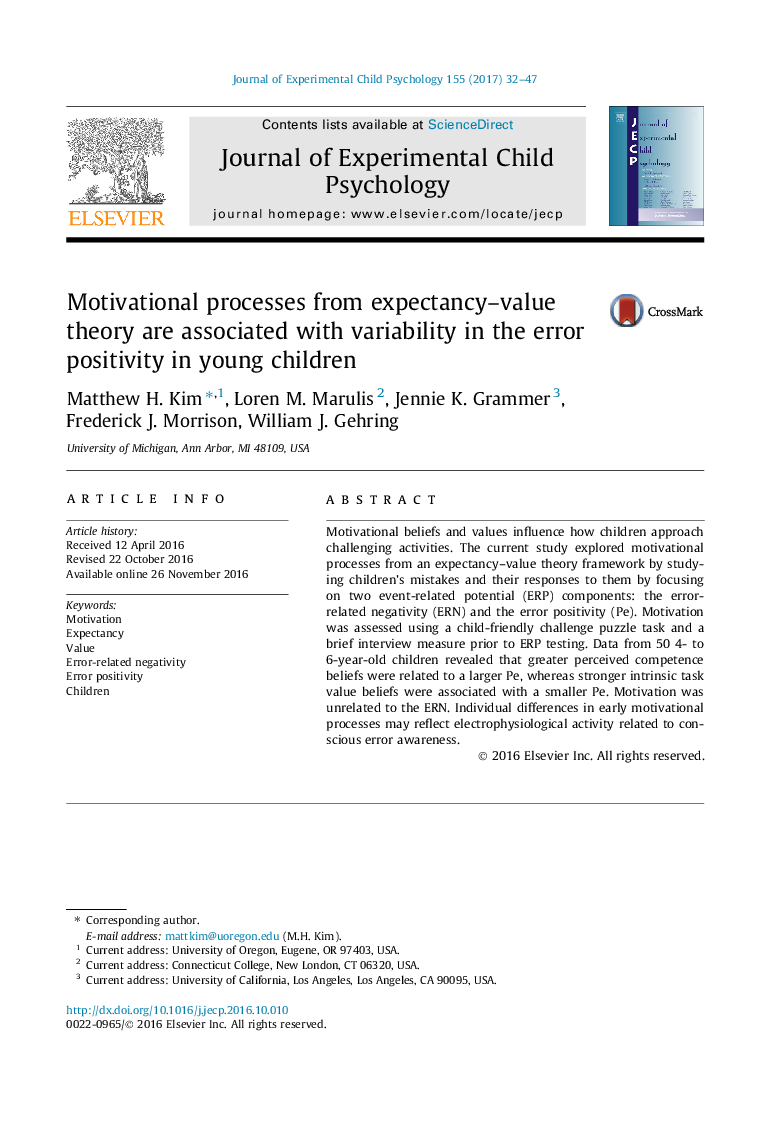| Article ID | Journal | Published Year | Pages | File Type |
|---|---|---|---|---|
| 5040071 | Journal of Experimental Child Psychology | 2017 | 16 Pages |
â¢Links between motivation and neural indices of error monitoring were explored.â¢The ERN and Pe were observed in children ages four through six.â¢Perceived competence and intrinsic task value beliefs were differentially related to the Pe but not to the ERN.
Motivational beliefs and values influence how children approach challenging activities. The current study explored motivational processes from an expectancy-value theory framework by studying children's mistakes and their responses to them by focusing on two event-related potential (ERP) components: the error-related negativity (ERN) and the error positivity (Pe). Motivation was assessed using a child-friendly challenge puzzle task and a brief interview measure prior to ERP testing. Data from 50 4- to 6-year-old children revealed that greater perceived competence beliefs were related to a larger Pe, whereas stronger intrinsic task value beliefs were associated with a smaller Pe. Motivation was unrelated to the ERN. Individual differences in early motivational processes may reflect electrophysiological activity related to conscious error awareness.
